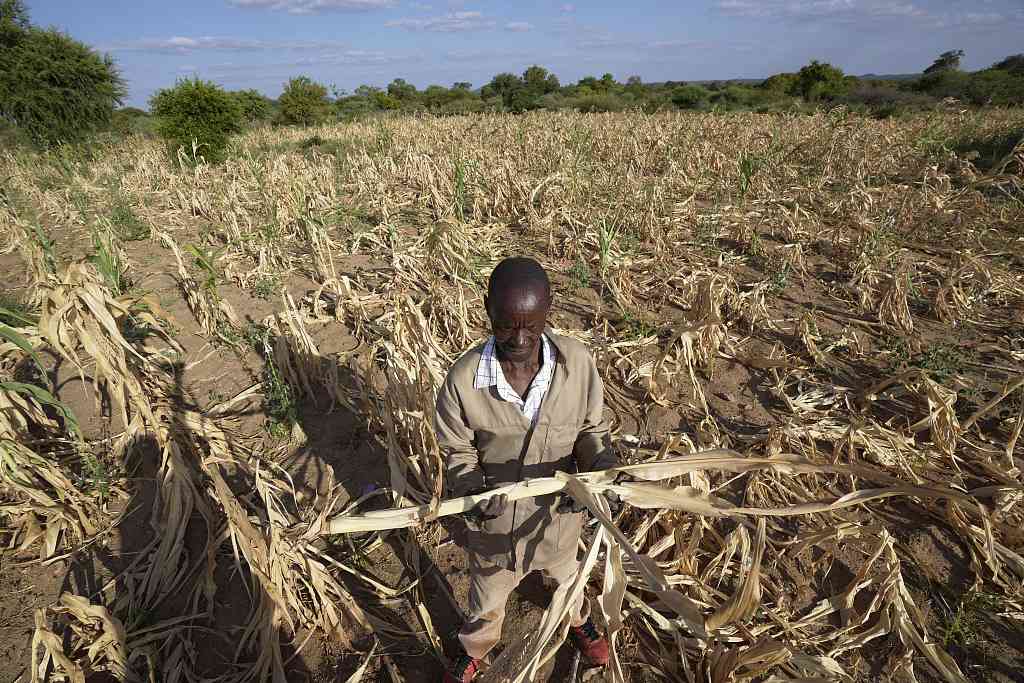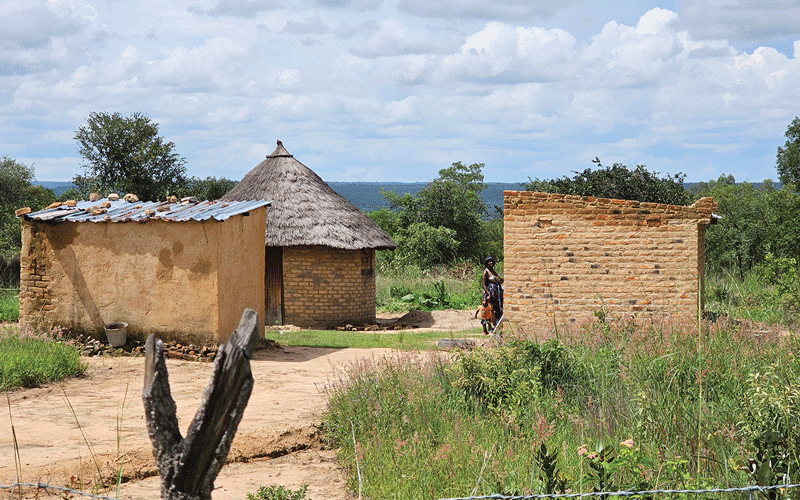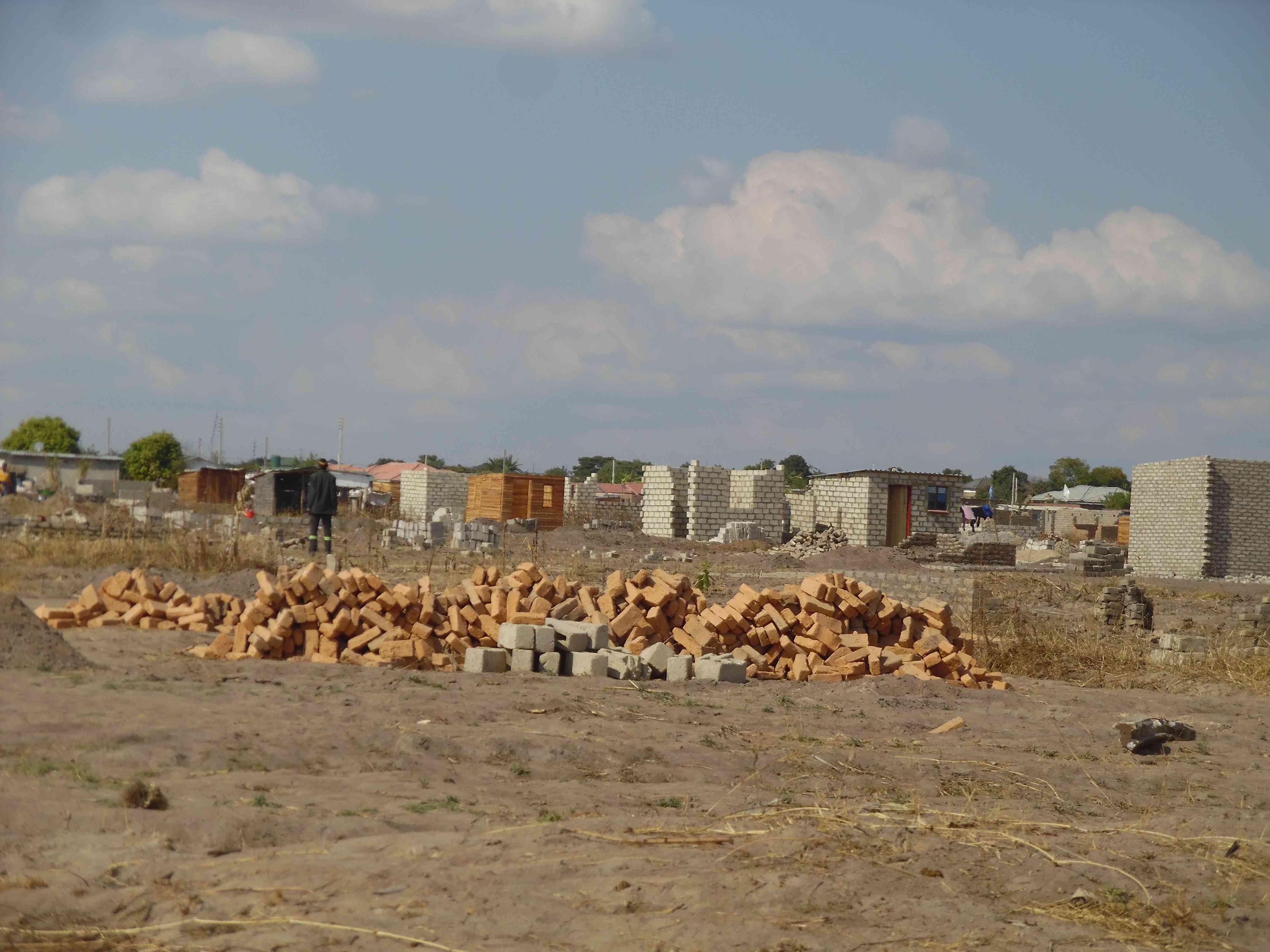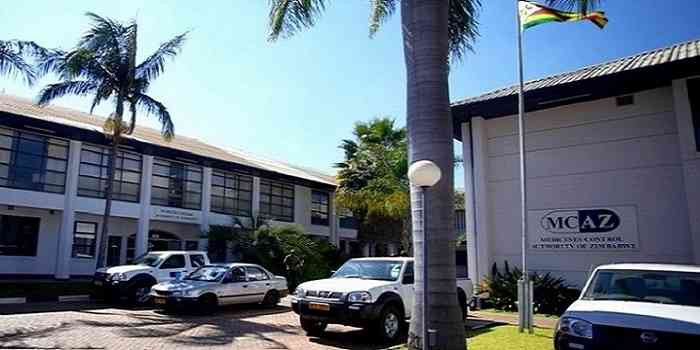
"We have exhausted every option, from early planting, conservation farming and switching to small grains. But this time, nothing worked. The future looks uncertain and frightening,” narrated 53-year-old Chipo Mashindi as she walks through her failed maize crop in Mwenezi district, Masvingo province.
Zimbabwean smallholder farmers like Mashindi would normally be busy harvesting produce from their fields, but this year has been different.
The majority of farmers have watched their crops wilt, shrivel and die due to the El Nino-induced drought.
In what should be a period of bounty, they are already struggling to put food on the table.
On April 3, 2024, President Emmerson Mnangagwa declared the drought a state of national disaster before sending a begging bowl to help alleviate the already biting hunger crisis.
The number of people that require food aid has surged to 9 million, according to latest data from government.
Even “drought-tolerant” methods failed.
Mashindi knew of the El Niño predictions and expected below-average rainfall.
- NoViolet Bulawayo’s new novel is an instant Zimbabwean classic
- Jah Prayzah, Zanu PF rekindles ‘lost love’
- Bank workers appeal to Ncube for tax relief
- Indosakusa marks 21-year anniversary milestone
Keep Reading
“We resorted to drought tolerant crops, such as sorghum and millet but everything failed” she said.
Sorghum and millet, known as “small” or “traditional” grains, are being promoted within Zimbabwe’s agriculture sector as they require less water than maize for example.
Mwenezi district has experienced recurring droughts leading to perennial food insecurity.
This has caused extreme hardship for local farmers and communities reliant on rain-fed agriculture for sustenance and economic stability.
El Niño has negatively impacted the area with the drought decimating thousands of livelihoods across the country, slashing incomes and impacting the capacity of farmers to feed themselves.
With only one annual cereal harvest season, what Zimbabwean subsistence farmers produce between April and June must last them through an entire year.
Mashindi, a mother of five, said she was not sure how her family is going to make it to the next harvest.
“I am not sure how we are going to survive. l harvested nothing meaningful to last us until the next harvest in 2025,” she said.
“Our crops were a total write off,” said Sithabile Sibanda, also living in Mwenezi."
More than just a hunger problem
Many Zimbabweans are deeply concerned about their ability to provide for their children's basic needs, such as nourishment and clothing, as well as ensuring their healthcare in case of illness.
Some are already being forced to switch from nutritious food to cheaper staples such as amarula nuts as a mitigatory measure.
Apart from the water problems, increasing hunger will impact the education system as many children will drop out of school because of hunger.
‘Lean season’ without end
In Zimbabwe, the height of the lean season is December to March. These are the months when food stocks dwindle but the harvest has not yet started. This year 2,7 million Zimbabweans required food assistance.
Mwenezi Development Training Centre working in partnership with World Food Programme and with financial support from the United States Agency for International Development provided lean season food assistance (LSA) to 230 000 people in five districts from January to March 2024.
This helped many people experiencing hunger.
One of the beneficiaries, Tilda Ndlovu (33) explained that the situation was difficult before receiving assistance.
“My family hardly had a meal in the afternoon. Most of the time we would go to bed without eating anything. Sometimes we had vegetables without any starch”, she said.
Now the LSA programme has ended, but people have little to harvest.
“Most families will hardly have any food to eat. Some will have one meal a day while others will have nothing to eat,” said Innocent Mutamba from Rutavo village in ward 2 of Mwenezi.
He added: “A number of families are facing extreme food insecurity. Among them are households headed by children, the elderly, the sick or the disabled, who find themselves in dire circumstances.
“We have nothing in the fields, not a single grain, what awaits us beyond this season is frightening. We just hope that development partners will work together to bring some food aid for us, any delay in bringing food aid will result in a disaster in the community."











